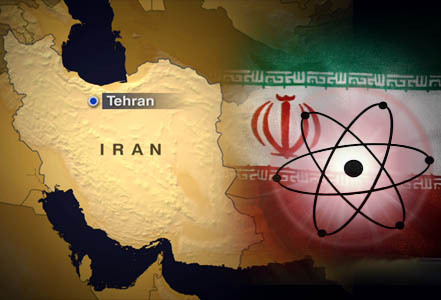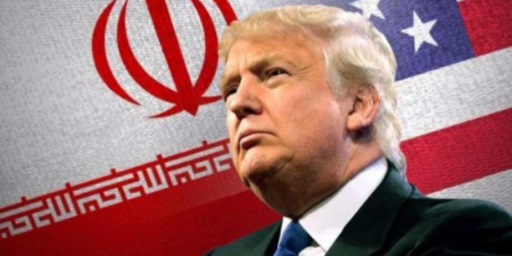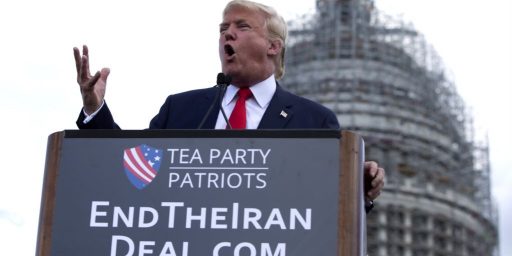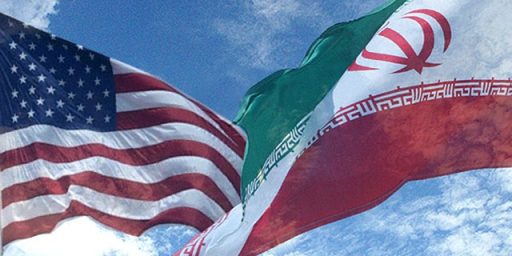Iran: False Dilemmas
 Yesterday, the Atlantic Council hosted a rousing debate between Flynt Leverett and Michael Ledeen, moderated by David Ignatius, on the topic “Iran: Engagement or Regime Change?”
Yesterday, the Atlantic Council hosted a rousing debate between Flynt Leverett and Michael Ledeen, moderated by David Ignatius, on the topic “Iran: Engagement or Regime Change?”
In my New Atlanticist post, “Iran: China 1972 or Russia 1987?” I summarize the key points made by the participants and then conclude,
I find that one rarely goes wrong taking the most pessimistic assumptions of both sides and assuming they’ll come true.
Ledeen is almost certainly right that the United States and Iran are simply too far apart to come to an amicable general accord. It would be great if Iran would help us solve all our myriad problems in the region but they’ll only do so in those cases where they can’t afford to do otherwise.
But I agree with Leverett that the implosion of the Islamist regime is a neocon fantasy. We’ve been counting on the “Iranian moderates” since Ollie North and the gang cooked up their elaborate arms for hostages deal and been continually disappointed. The Green movement that has Americans all a-Twitter is not the rise of a Jeffersonian democratic movement but the backers of a competing regime-approved Islamist candidate. Hard evidence or no, I’m pretty sure the last election was stolen. Hell, I’m pretty sure the one before that was stolen, too. But, at the end of the day, the Iranian president is a hood ornament. Iran is run by the ayatollahs, not the suits.
At the same time, Ledeen is almost surely right that bombing Iran isn’t an option. (And I only qualify with an “almost” because Chuck Wald, who knows a little something about air operations, disagrees.)
Sadly, this means that we’re likely to see not only the continuation of the mullahs in power in Iran but, ultimately, will have to accept the “unacceptable” reality of seeing that regime armed with nuclear weapons. But, if we can’t talk, wish, or bomb that outcome away, that’s where this road leads.
More at the link.






The problem isn’t so much the Regime has nukes, but that it is a regime that will give those nukes for some bad boys to play games with – leaving “as they say in Chicago(Obamaland) leave no finger prints on the gun.
Will we bomb them if an unidentified gang takes out LA? I doubt it – not a nation naive enough to be still full of Obama lovers.
Reagan got Kadaffhi, but this nation is no longer of the Reagan mindset – propaganda works -that’s why they do it.
James- I was under the impression that the Revolutionary Guard was moving in and becoming more of a power, that Khameini and Ahminejad were both getting marginalized.
Steve
As I have commented before, watch for Israel to take action. Our current leader is not going to start anything with Iran, but he may be overruled by the IAF striking all over Iran for many days.
The key question is still what reaction Iran will take against the US if Israel does strike. If they do kill Americans, we will go to war also.
That was my impression too, but from what I’ve read I don’t think its necessarily marginalizing Ahmadinejad. Rather, as a former member of the revolutionary guard himself, and someone who (from my understanding) employs the revolutionary guard in directing various parts of his government, Ahmadinejad is both an outgrowth and parallel to the guard’s rise in power.
He is simultaneously a product of the guard’s rise, and someone who is causing that rise to continue.
I think quotes like this one:
“An Islamic government is not capable of running a vast and populous country like Iran.”-President Ahmedinijad’s Chief of Staff.
indicates an internal power struggle between the ayatollah/islamic council, and Ahmadinejad’s regime.